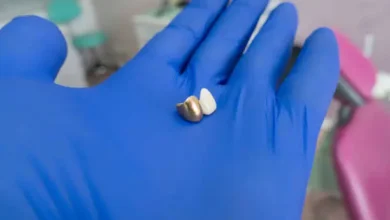How Does Liposuction Affect Your Metabolism

Liposuction is a popular cosmetic procedure that removes excess fat from specific body areas. While it’s widely sought after for its body-contouring benefits, there are ongoing debates about whether it affects your metabolism. If you’re considering liposuction, you might be wondering: “Does liposuction mess up your metabolism?” In this article, we’ll delve into the science behind liposuction, examine its impact on your metabolism, and help you separate fact from fiction.
Before diving into how liposuction in Turkey might impact metabolism, it’s essential to understand what metabolism is. Metabolism refers to the chemical processes your body uses to convert food into energy. It includes two primary components: catabolism, which breaks down food molecules to release energy, and anabolism, which uses this energy to build and repair cells. Several factors influence your metabolism, including age, genetics, muscle mass, and physical activity.
The Science Behind Fat Removal and Metabolism
Knowing how fat functions in your body is crucial to understanding how liposuction might affect metabolism. Fat isn’t just an energy reserve; it plays a significant role in regulating hormones, insulating organs, and maintaining overall health. When fat is surgically removed, your body experiences changes that could influence your metabolic processes. However, these changes depend on various factors, including how much fat is removed and from which areas.
Immediate Effects of Liposuction on Metabolism
After liposuction, your body experiences several immediate changes as it adjusts to removing fat cells. These changes can temporarily affect your metabolism, which refers to how your body burns calories and processes nutrients. Understanding these immediate effects is crucial for setting realistic expectations and planning your post-surgery recovery.
Disruption in Energy Balance
Liposuction involves removing fat cells, part of your body’s energy storage system. Fat cells store excess calories that your body can use for energy. When a significant amount of fat is removed through liposuction, your body experiences a sudden decrease in stored energy reserves. This disruption in energy balance can cause your body to react in various ways, especially in the first few weeks after the procedure.
Impact on Resting Metabolic Rate (RMR)
One of the primary concerns after liposuction is the potential impact on your resting metabolic rate (RMR). RMR is the energy your body requires to maintain basic functions, such as breathing, circulation, and cell production, while at rest. Because liposuction removes fat cells, some worry that this fat reduction might lower the RMR, leading to slower calorie burning and potential weight gain.
Metabolic Adaptations
In response to the sudden loss of fat, your body may undergo several metabolic adaptations to achieve a new state of balance. One such adaptation could be a temporary increase in hunger or appetite as your body seeks to replenish its energy reserves. This is a natural response, as your body’s regulatory mechanisms try to restore what it perceives as a deficit in energy storage.
Another adaptation could involve a shift in how your body utilizes the remaining fat stores. Since the total number of fat cells has decreased, your body may store excess calories more efficiently in the remaining fat cells. This adaptation underscores the importance of maintaining a healthy diet and exercise routine after liposuction to prevent unwanted fat accumulation.
Temporary Swelling and Fluid Retention
It’s also important to note that you may experience swelling and fluid retention immediately after liposuction in the treated areas. This swelling can temporarily mask the full extent of fat removal and influence your body’s metabolism. The body needs time to reabsorb and process the excess fluids, which can affect your overall weight and energy balance during the initial recovery phase.
Fluid retention might also cause temporary fluctuations in weight, but this is typically resolved as your body heals and the swelling subsides. As the swelling decreases, your body’s metabolic processes will gradually return to normal, and you’ll begin to see the true results of the procedure.
Recovery and Resumption of Normal Metabolic Functions
As you progress through the recovery period, your body will continue to adjust to its new composition. It’s crucial during this time to follow your surgeon’s post-operative guidelines, which often include recommendations for diet, hydration, and light physical activity. Proper nutrition and gentle exercise can help support your metabolism as it returns to its baseline level.
In most cases, the body’s metabolic rate will stabilize within a few weeks, and any immediate effects of liposuction on metabolism will diminish. Your body will find a new equilibrium, and with the right lifestyle choices, you can help ensure that your metabolism remains healthy and active.
In conclusion, while liposuction can temporarily disrupt metabolism, these effects are usually short-lived. By understanding the immediate metabolic changes and following a healthy post-operative routine, you can support your body’s natural healing process and maintain a stable metabolic rate as you enjoy the benefits of your new body contour.
Long-Term Metabolic Implications of Liposuction
There’s ongoing research about the long-term metabolic effects of liposuction. Some studies indicate that while liposuction doesn’t significantly alter metabolism in the long run, it may lead to fat redistribution in other body areas. This redistribution can sometimes affect metabolic health if not managed properly. However, no conclusive evidence suggests that liposuction permanently lowers your metabolic rate.
Liposuction doesn’t mess up your metabolism but requires careful consideration and management to maintain metabolic health post-procedure. Combining liposuction with a healthy lifestyle and staying informed about the procedure’s potential effects allows you to make empowered decisions that support your long-term wellness. Remember, liposuction is a tool for enhancing your appearance, not a substitute for a balanced diet and regular exercise.
Choosing the right clinic and surgeon for your needs is crucial for liposuction or any other cosmetic procedure. Visit Flymedi today to compare and review top-rated clinics worldwide, read real patient testimonials, and make an informed decision about your next step in achieving your desired body. Start your journey to a better you confidently—explore your options now!



